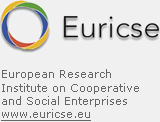
Call for papers
Social capital, identified generally as trust, norms and networks, is often studied for the ways it can facilitate cooperation for individual well-being and social welfare. Yet critical views of social capital claim that even though the concept was applied to underscore aspects of collective action, it provided economists and institutions oriented toward the neoclassical tradition with the means to promote individualist and instrumentalist perceptions of social capital that overlook collective dimensions of the economy. Nonetheless, there have been many attempts to re-contextualise and re-operationalise the concept of social capital in order to incorporate its collective aspects on the basis of alternative principles of human behaviour. Generally these attempts support the collaboration of scholars in various disciplines and the application of different approaches and methods, and aspire to restore the pluralist and activist features of the economy and economics.
These collective dimensions, characteristic of social and scholarly discourse (even more so in the social sciences that study human behaviour), can pertain to: the social and institutional embeddedness of the economy; the pluralism of needs, priorities, values and attitudes; the complex processes of participation and coordination, struggle and debate, collaboration and consensus between diverse and conflictual interests in both the public and private spheres; and the combination of multiple meanings and principles, and thus of various disciplines and perspectives of social science research, aiming at a more realistic and holist understanding of the economy.
In this context, we would like to invite contributions that re-address the concept and measures of social capital in a way that enables us to incorporate the complex reality of social relations, as a dynamic space where people interact, define and pursue, individually and collectively, principles and objectives, means and ends for well-being. Such alternative perceptions have the potential not only to helps us rethink the ways we see social relations, but also the way we see the economy and economics.
Thus, we encourage contributions that not only deal with the ontology and methodology of social capital, but also examine how this can become a vehicle to re-capture the collective aspects of the economy and economics. Included are contributions that focus on how networks, organisations, and various collectives can impact the way we perceive the economy and economics and become advocates of pluralism, multiplicity and activism. We welcome works that derive from various social science disciplines and use different units of analysis (individual, regional, country or cross-country level), methodologies and techniques (theoretical, empirical, qualitative and quantitative).
Abstracts (500 words maximum) should be submitted to Asimina Christoforou (asimina.christoforou@gmail.








